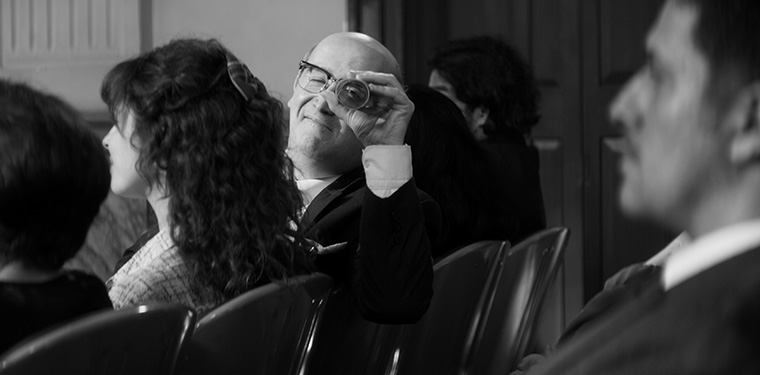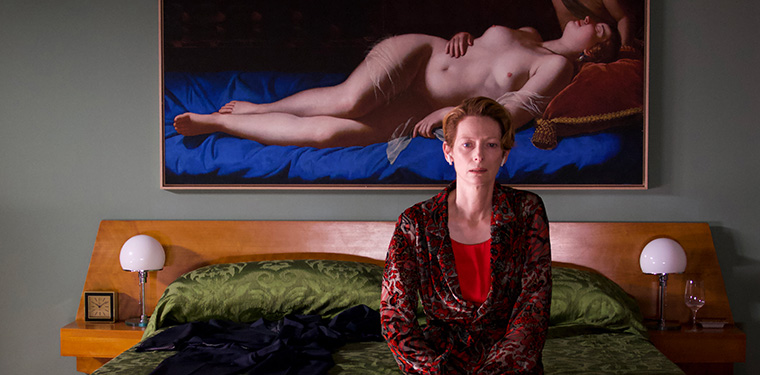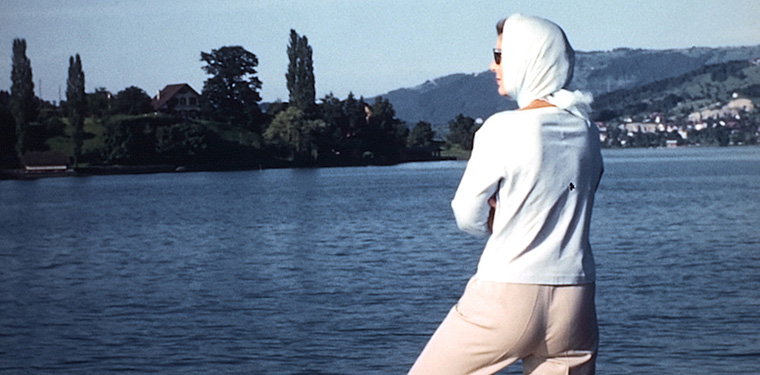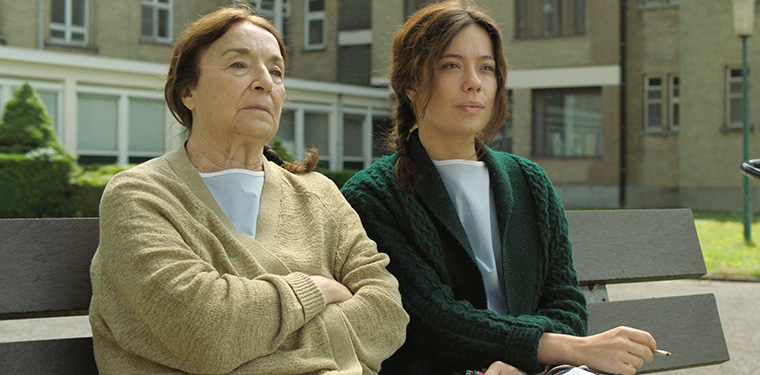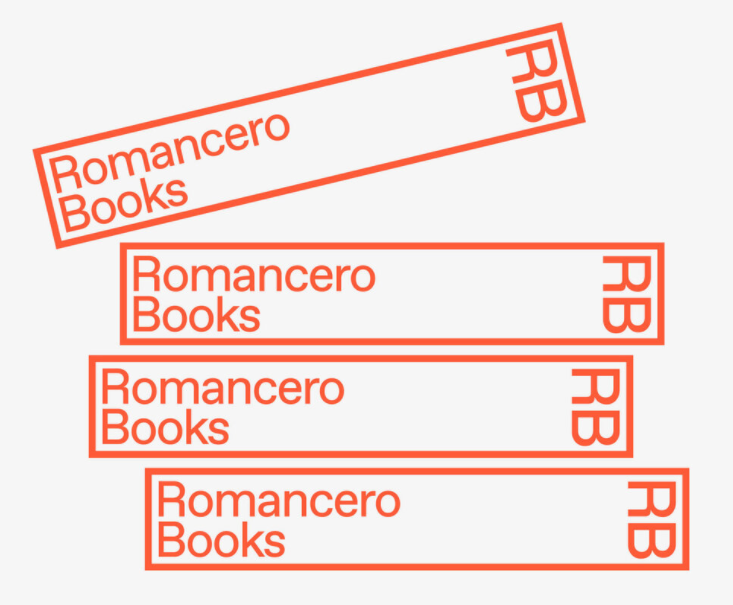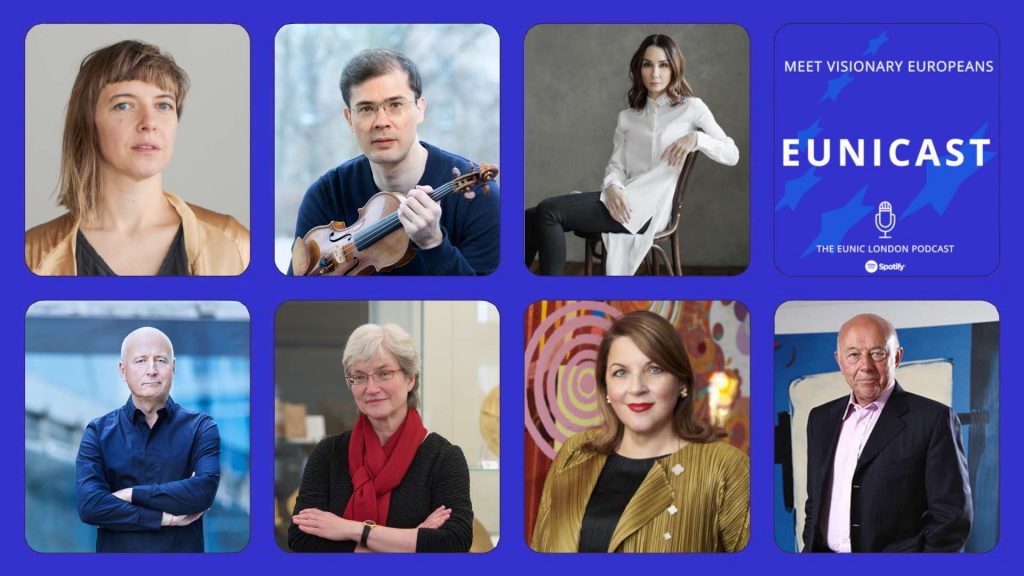Esther Rodriguez consigue el reconocimiento a toda su carrera investigadora con el premio «Merit Award» concedido por la Sociedad de Cientificos Espanoles en Reino Unido (CERU)
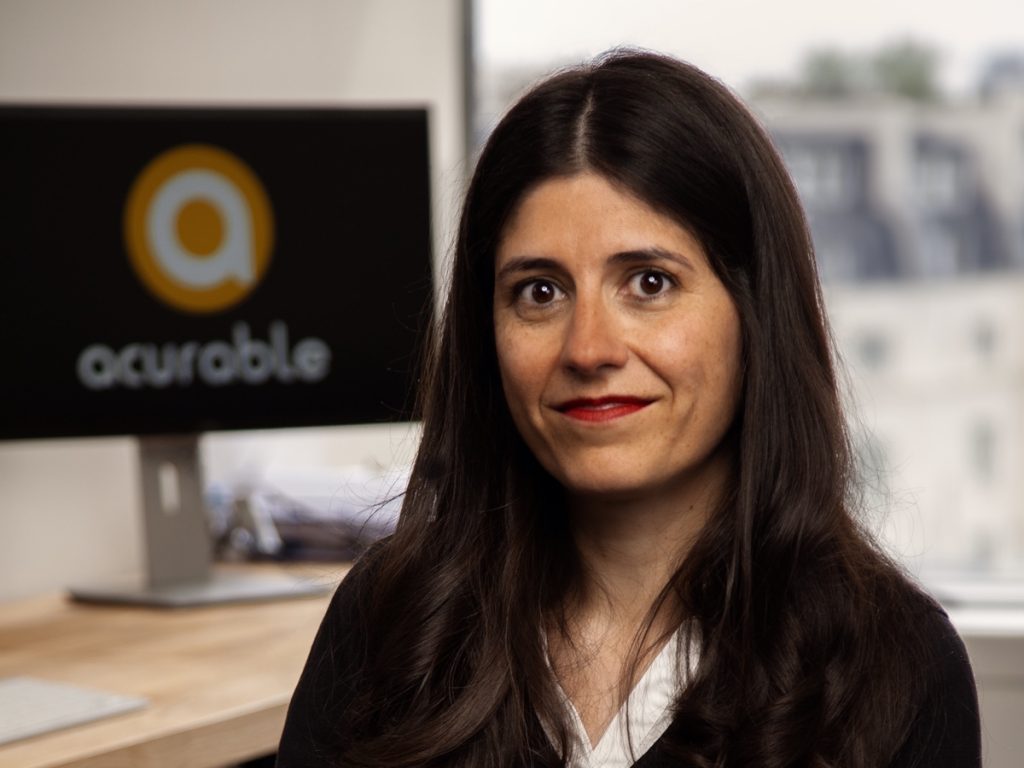
La Sociedad de Cientfficos Espanoles del Reino Unido (CERU) tiene el placer de anunciar a la ganadora del Premio «Merit Award». Este premio tiene como objetivo reconocer la carrera de un investigador espanol consolidado y de renombre internacional con sede en el Reino Unido que haya sido fundamental en el avance de la ciencia. Los candidates para este premio son nominados cada dos anos por miembros de CERU, el Comite de Premios de CERU y las instituciones asociadas.
En la edición del 2020, pospuesta debido a la crisis de salud por la Covid-19, la galardonada es Esther Rodriguez Villegas, Catedrática de Electrónica de Baja Potencia del Imperial College London, Fellow de la Royal Academy of Engineering, directora del Wearable Technologies Lab y fundadora de la empresa Acurable, por su prolífica y destacada trayectoria científica tanto en Espana como en Reino Unido.
La profesora Rodríguez Villegas inició su carrera estudiando Física en la Universidad de Sevilla, en el área de Electrónica, graduándose primera de su promoci6n. Realizó su doctorado en la misma universidad, donde se graduó en 2002. Tras finalizar su doctorado, la profesora Rodrfguez Villegas se incorporó al Imperial College London, donde ha desarrollado a lo largo de los años una apasionante carrera en el Departamento de lngeniería Eléctrica y Electrónica.
Su area de especialización, la electrónica de baja potencia, ha impulsado sus intereses hacia el desarrollo de sensores portátiles para la monitorizaci6n fisiol6gica con un enfoque en aplicaciones sanitarias. A lo largo de los años, ha intercalado una prolífica carrera como académica, con una intensa actividad en el área de innovación y transferencia tecnológica, avalada por múltiples reconocimientos.
Ejemplos de ello incluyen dos European Research Council Grants, Starting y Consolidator, un premio da la innovaci6n de la lnstituci6n de lngeniería y Tecnología (IET), un XPRIZE y, en 2020, la Medalla de Plata de la Real Academia de lngeniería, convirtiéndose en miembro electo de la Academia (FREng) en ese mismo año.
Además de su carrera académica, la profesora Rodríguez Villegas ha desarrollado también una intensa actividad en la industria. En 2016, fund6 Acurable, una start-up que comercializa dispositivos portatiles avanzados para diagnosticar y controlar con precision las afecciones respiratorias. Entre otras cosas, Acurable ha sido nombrada una de las 100 empresas mas disruptivas del mundo (Disruptl 00). Con este reconocimiento, la profesora Rodrfguez Villegas tambien ha sido nombrada miembro honorario CERU y se convertirá en una distinguida asesora de la Sociedad.
La presidenta de CERU, Dra. Carmen Sanchez-Canizares, destaca que «la profesora Rodrfguez Villegas es un excelente ejemplo a seguir como española líder internacionalmente, desarrollando su carrera investigadora en el Reino Unido. Su carrera profesional representa un referente para nuestros miembros. Como representantes de la comunidad de investigadores espanoles en Reino Unido, SRUK/CERU se enorgullece enormemente de reconocer su destacada carrera con nuestro Premio al Merito».
En palabras de la galardonada, «Es un honor recibir este premio, totalmente inesperado. Para mí es particularmente emotivo porque, independientemente de donde viva o donde desarrolle mi actividad, es un galardón español, y cualquier reconocimiento que venga de España tiene un valor especial.»
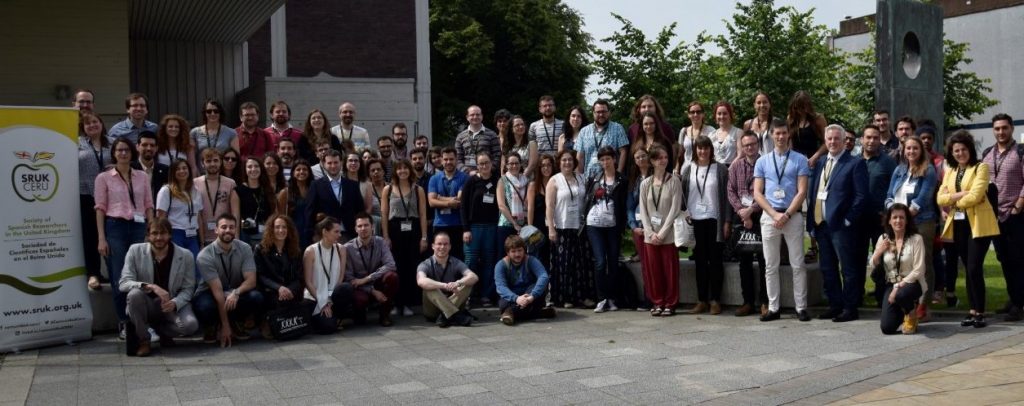
Más información sobre CERU
La Sociedad de Científicos Españoles en el Reino Unido (CERU), fundada oficialmente en 2012, integra a mas de 800 socios pertenecientes a un variado espectro de profesionales de la investigacion en todas sus disciplinas, desde estudiantes de mastery doctorado a catedraticos y profesionales, trabajando tanto en la industria come en el sector público del Reino Unido. Su labor se centra en facilitar la comunicación entre los investigadores españoles en el Reino Unido, fomentar la colaboración entre ambos países para sumar sinergias e incrementar los éxitos de la l+D+i, convertirse en portavoces de los cientificos espanoles ante las instituciones publicas britanicas y espanolas y mejorar la percepcion social de la ciencia.
Desde sus inicios, CERU ha realizado mas de 400 actividades, y cuenta con el apoyo de la Fundación Ramón Areces, la Fundación Banco Santander, la Embajada de España en Reino Unido, la Fundación Española para la Ciencia y la Tecnología (FECYT) y la Fundación Lilly, entre otros. En 2016, recibio el Premio a la lnnovación concedido por el Foro de Empresas lnnovadoras (FEI), en la categoria de organismo de apoyo a la innovación. La organización tiene delegaciones establecidas en Londres, Cambridge, Oxford, Yorkshire, Escocia, y las regiones centrales (Birmingham), del Noroeste (formada por Manchester y Liverpool) y del Suroeste (incluyendo Bristol, Cardiff y Bath) de lnglaterra.
The 10th Spring Weekend of the London Spanish Film Festival is back
The 10th Spring Weekend of the London Spanish Film Festival comes back, 28 – 30 May 2021, after missing one very strange year, full of energy and positive vibes setting the mood for an exciting 17th edition in September.
To celebrate Spanish cinema and its artists, as part of this weekend, you’ll find the latest film by veteran Fernando Trueba, three impressive debuts by three promising women, a hopeful and moving reflexion on what life is… and a special screening of the latest treat from Maestro Almodóvar.
For the full programme go to www.londonspanishfilmfestival.com
LAS NIÑAS
Schoolgirls
dir. Pilar Palomero | with Andrea Fandos, Natalia de Molina, Zoe Arnao | Spain | 2020 | 97 min | cert. 15 | London premiere | In Spanish with English subtitles
Celia is an 11-year-old girl studying at a nun’s school in 1992. She’s a responsible student and a considerate daughter but the arrival of a new classmate will open a little window Celia is willing to look out from to discover about the outside world. Together with her group of friends she’ll give her first steps into adolescence and first-times even if that means confronting her mother and questioning everything that meant comfort and security. The film has won several awards among which Best Film, Best New Director, Best
Cinematography and Best Original Screenplay Goya Awards.
Fri 28 May | 6.30pm | £13, conc. £11
EL OLVIDO QUE SEREMOS
Memories of My Father
dir. Fernando Trueba, with Javier Cámara, Nicolás Reyes Cano, Juan Pablo Urrego | Colombia | 2020 | 136 min | cert. PG | In Spanish, Italian and English
with English subtitles | Distributed by Curzon
Trueba’s latest film tells the story of Héctor Abad Gómez, one of Colombia’s most beloved national heroes, through the eyes of his son. He balances a nuanced portrait of Abad Gómez’s family life in Medellín and the harsh reality of the country in the turbulent 1970s and 1980s, in which corruption is common and the government cannot be criticised. Based on the book written by Abad Gómez’s son, Memories of My Father is a memorable work, a love story and the portrait of a man fighting for the basic human rights of his
people: food, water and adequate shelter.
Fri 28 May | 8.35pm | £13, conc. £11
Sat 29 May | 5.50pm | £13, conc. £11
LA VOZ HUMANA
The Human Voice
dir. Pedro Almodóvar, with Tilda Swinton | Spain | 2020 | 30 min | cert. PG | In English and Spanish with English subtitles
Jean Cocteau wrote The Human Voice in 1928 and, since then, many artists have staged or filmed their own vision of this woman’s dramatic moments after her lover of the last few years leaves her to get married with to another woman. Almodóvar’s stunning version brings to The Human Voice his sense of aesthetics, of rhythm and his peculiar, subtle sense of humour, making the pièce his own. Chameleonic Swinton, in what seems a wonderful and perfect tuning with Almodóvar, captures the essence of his style bringing to it some
delightful British exquisiteness. A must.
The film will be followed by a 40 min video-Q&A with Pedro Almodóvar and Tilda Swinton with Mark Kermode. It will be preceded by a video-presentation by Prof. Maria Delgado
Sat 29 May | 4.15pm | £13, conc. £11
LA INNOCÈNCIA
La inocencia | The Innocence
dir. Lucia Alemany | with Carmen Arrufat, Laia Marull, Sergi López, Joel Bosqued | Spain | 2019 | 92 min | cert. 15 | London premiere | In Catalan and Spanish with English subtitles
Lis is a teenager whose dream is to become a circus artist and go traveling. While she knows she’ll have to confront her parents and fight for it, she spends the summer playing around with her friends and with her boyfriend, a few years older than herself and the relationship with whom she tries to keep hidden from the constant gossip of the neighbours. Lucia Alemany’s impressive first feature film is a fresh coming-of-age story that captures perfectly the rural and festive mood without losing any realism nor honesty.
Sat 29 May | 8.45pm | £13, conc. £11
MY MEXICAN BRETZEL
by Nuria Giménez | Spain | 2019 | 73 min | cert. PG | London premiere | In English
Giménez’s debut film offers, through archive footage of home made movies, a glimpse into the life of a wealthy European couple, Léon and Vivian Barrett, after WW2 and up to the 1960s. The quality of the footage is superb and is accompanied by text from Vivian’s diary offering details of their lives, her thoughts, gossip… Mesmerising and compelling, this is a clever work of direction and of editing by Giménez, and has won her, among others, the Found Footage Award at the Internation Film Festival of Rotterdam last year.
Sun 30 May | 6.10pm | £13, conc. £11
LA VIDA ERA ESO
That Was Life
dir. David Martín de los Santos, with Petra Martínez, Anna Castillo, Florin Piersic Jr., Ramón Barea | Spain/Belgium | 2020 | 109 min | cert. PG | UK premiere | In Spanish and French with English subtitles
When María and Verónica end up meeting and sharing a hospital room in Belgium, the only thing they have in common is that they are Spaniards who came to work to this country with the hope to find more opportunities than back at home. Slowly a bond grows between them and one of them will start a
journey to Almería, where the roots of the other are, initially to meet her family, finally to discover principles beyond those on which she had based her whole life. The film is poignant in his humble and intimate approach. The subtly nuanced acting of Petra Martínez in the lead role as a woman pushing herself
out of the boundaries of the role in which she felt confined, adds emotion to this wonderful film.
Sun 30 May | 7.55pm | £13, conc. £11
The Galician Film Forum celebrates the Day of Galician Literature with its premiere of ‘Nación’ in the UK
- The London-based organisation is continuing to hold its events despite the pandemic by screening the latest film from Margarita Ledo online
- On Wednesday 19 May there will be a live online Q&A with the director
- The film will be available from 15 to 23 May via Vimeo On Demand and only in the UK
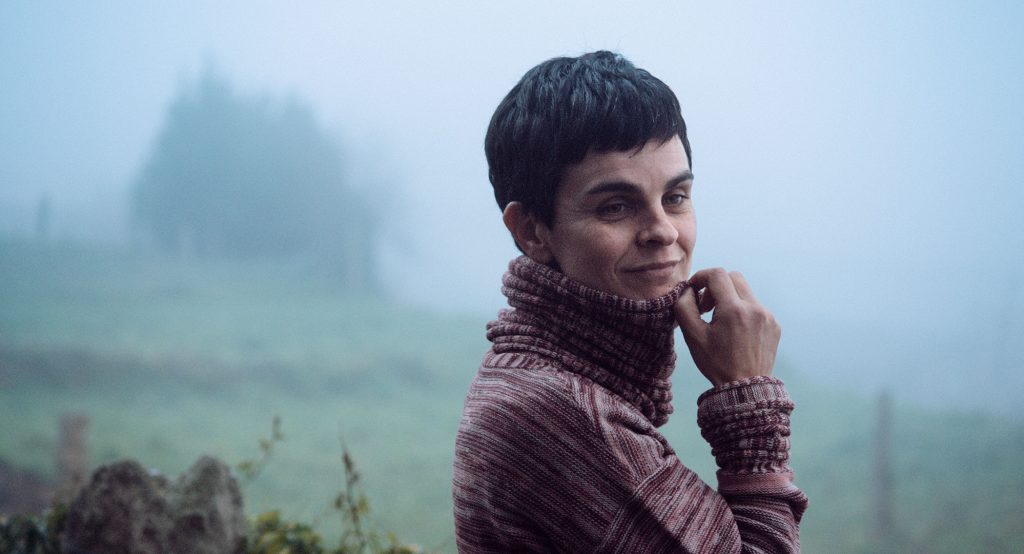
The London-based Galician Film Forum (GFF) will be celebrating the Day of Galician Literature this year with the UK premiere of ‘Nación’, the latest film from Margarita Ledo. From 15 to 23 May, the film will be available on the platform Vimeo On Demand exclusively for viewers based in the UK. There will also be an online Q&A with the director on Wednesday 19 May at 7pm British time which will be shared live on the GFF’s social media channels. The event has been supported by the Office for Scientific and Cultural Affairs at the Spanish Embassy in London.
The film will be screened in Galician with English subtitles and viewers will be able to rent it for 48 hours for £3.95 (the number of tickets is limited). This screening takes place seven weeks after the film premiered at cinemas in Spain, where it is still showing. ‘Nación’ was shown for the first time at the 17 Festival de Sevilla where it won the prize for Best Direction of a Spanish Film. It has also received the Mestre Mateo 2021 award for Best Documentary.
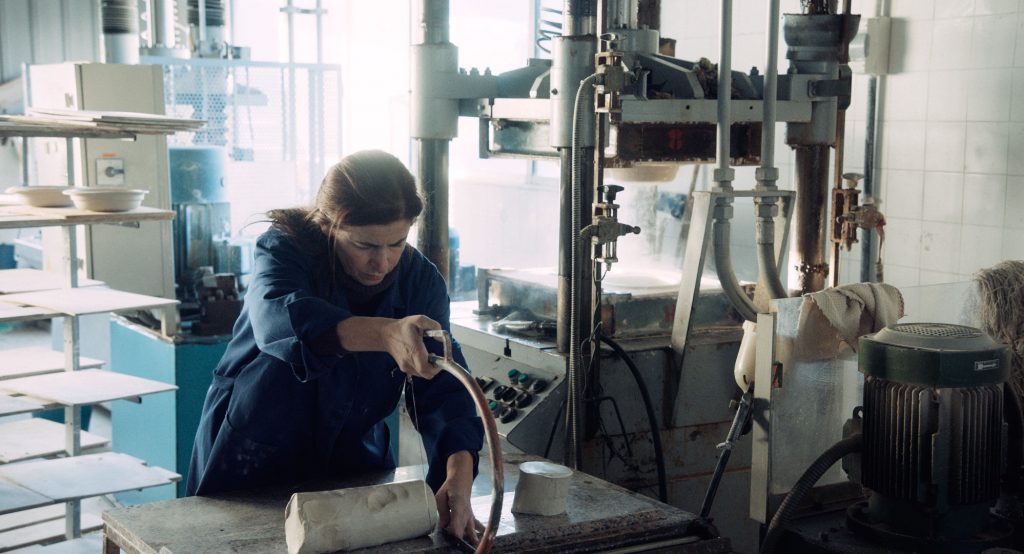
A struggle without end
In this non-fiction film, Margarita Ledo looks into how long it took women to receive rights ‘not only to vote, but to attain a paid job and to have the opportunity to become independent. In summary, how long it took us to become Nation’. At the core of the film is the closure of the Pontesa ceramics factory in 2001 and how, twenty years after the long-awaited sentence on the pending debt claim, a group of workers recalls the symbol of their individual liberty, their economic freedom and their struggle as a union.
These workers have kept the fight for women’s rights in Spain alive in the twentieth century. Their life story is told through the presence of a sphinx, played by Eva Veiga, who seeks out the memories of the women working in the textile, ceramic and conserves industries and announces voices and archives that link different times and bodies together.
In ‘Nación’, archive images are interspersed with acted scenes from Mónica Camaño, Mónica de Nut, Laura Martínez Iglesias and Xoana Pintos. The film also includes some ex-workers from Pontesa including Nieves Pérez Lusquiños, Manuela Nóvoa Pérez, Ester García Lorenzo, Carmen Portela Lusquiños e Carmen Álvarez Seoane.
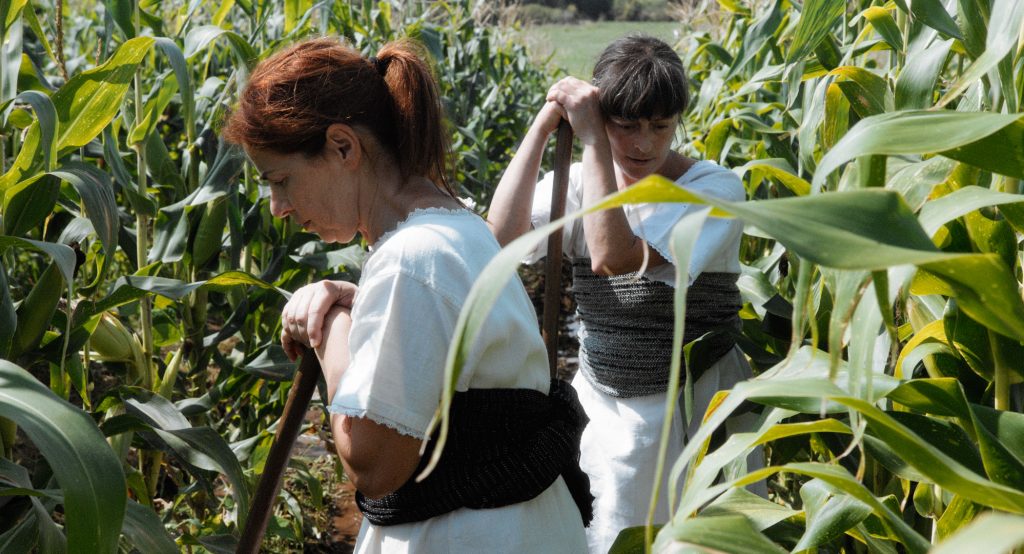
Margarita Ledo Andión (1951, Castro de Rei, Lugo) is a very important cultural figure who is known for her work as a filmmaker and a writer. She is also a professor in audiovisual communication at the University of Santiago de Compostela where she was also dean. Her first book, a book of poems called ‘Parloar cun eu,cun intre,cun inseuto’ was published in 1970 followed by further poetry, fiction essays and research.
She has founded and directed several publications that focus on the importance of the Galician language and tend to have a militant spirit behind them. Her filmography includes the two feature-length films ‘Santa Liberdade’ (2004), ‘Liste, pronunciado Líster’ (2007) and the fictional film ‘A cicatriz branca’ (2012) which was based on her novel ‘Porta Blindada’. She has also directed various experimental short films and documentaries. In 2017, the international film festival Documenta Madrid held a retrospective for her. She was awarded the National Prize of Galician Culture in cinema and audiovisual production in 2008 and the Otero Pedrayo award in 2017. She is also a fellow of the Royal Galician Academy.
Tickets ‘Nación’:https://vimeo.com/ondemand/nacion/
El Galician Film Forum estrena ‘Nación’, la última película de Margarita Ledo, en el Reino Unido
● La organización londinense prosigue con su actividad a pesar de la pandemia con la proyección online del último film de Margarita Ledo
● El miércoles 19 está previsto un encuentro en directo por vía telemática con la directora
● La película estará disponible entre los días 15 y 23 de mayo en la plataforma Vimeo On Demand en exclusiva para el Reino Unido

El Galician Film Forum (GFF) de Londres celebra este año el Día de las Letras Galegas con el estreno en el Reino Unido de ‘Nación’, el último film de Margarita Ledo. Así, entre los días 15 y 23 de mayo, la película estará disponible en la plataforma Vimeo On Demand en exclusiva para el Reino Unido. Además, también está previsto un encuentro en línea con la directora el miércoles 19 de mayo, a las 7 de la tarde (horario británico), que se retransmitirá en directo a través de las redes sociales del GFF. Esta actividad es posible gracias al patrocinio de la Oficina para Asuntos Culturales y Científicos de la Embajada de España en Londres.
El film se va a exhibir en versión original con subtítulos en inglés y el alquiler por 48 horas tendrá un coste de 3,95 libras; además, el número de entradas estará limitado. Esta proyección en el Reino Unido tiene lugar siete semanas después de su estreno en las salas comerciales en España, donde aún puede encontrarse en cartelera. ‘Nación’ se estrenó en el 17 Festival de Sevilla, donde se alzó con el premio a la Mejor Dirección de Película Española, y recibió el Maestro Mateo 2021 al Mejor Documental.

Una lucha inacabada
En este filme de no ficción, Margarita Ledo aborda lo mucho que tardaron las mujeres en tener derechos, “no solamente en votar, sino en lograr un trabajo asalariado y en la posibilidad de ser independientes. En resumen, en lo mucho que nos llevó ser Nación”. El eje argumental es el cierre de la fábrica de cerámica Pontesa en 2001 y como, veinte años después, mientras esperan la sentencia sobre la reclamación de la deuda pendiente, un grupo de trabajadoras recuerda el símbolo de su libertad individual, su emancipación económica y su lucha sindical.
Esas trabajadoras mantienen viva la reivindicación de los derechos de la mujer en la España del siglo XX. La historia de sus vidas se desarrolla en presencia de una esfinge, encarnada por Eva Veiga, que reclama la memoria de las operarias del textil, la cerámica y la conserva y anuncia voces y archivos que engarzan tiempos y cuerpos diferentes.
En ‘Nación’ se alternan las imágenes de archivo y las interpretaciones de Mónica Camaño, Mónica de Nut, Laura Martínez Iglesias y Xoana Pintos con la participación de las extrabajadoras de Pontesa: Nieves Pérez Lusquiños, Manuela Nóvoa Pérez, Ester García Lorenzo, Carmen Portela Lusquiños y Carmen Álvarez Seoane.

Margarita Ledo Andión (1951, Castro de Rei, Lugo) es una relevante figura de la cultura conocida por sus facetas de cineasta y escritora. Además, es catedrática de Comunicación Audiovisual en la Universidad de Santiago de Compostela, donde también ejerció como decana. Publicó su primer libro, el poemario ‘Parolar cun eu,cun intre,cun inseuto’, en 1970, y con el tiempo verían la luz otros títulos de poesía, narrativa, ensayo e investigación.
A lo largo de su trayectoria vital fundó y dirigió diversas publicaciones con especial foco en la reivindicación de la lengua gallega y de espíritu militante. Su filmografía consta de los largometrajes ‘Santa Liberdade’ (2004), ‘Liste, pronunciado Líster’ (2007) y la ficción ‘A cicatriz blanca’ (2012), basada en su novela ‘Porta blindada’. También ha dirigido varias piezas cortas experimentales y documentales. En el 2017 el festival internacional Documenta Madrid le dedicó una retrospectiva. Fue Premio Nacional de la Cultura Gallega 2008 en Cine y Audiovisual y Premio Otero Pedrayo 2017 y es numeraria de la Real Academia Gallega.
Entradas ‘Nación’:https://vimeo.com/ondemand/nacion/
LA ESPAÑOLA: Riveting Writing from Spain with Alice Banks. May: Contemporary Fiction
The end of April was a very exciting time for Spanish-language literature, with Granta naming their ‘best of young Spanish-language novelists’, each published in English translation in their latest issue: Granta 155: Best of Young Spanish-Language Novelists 2. This issue – the second of its kind – brings together twenty-five of the best young voices from thirteen different Spanish speaking countries. I’m keen to get my hands on a copy and see whether Granta has discovered any new literary gems! This announcement got me thinking: who would be on my current ‘best-of’ list? Who are the contemporary Spanish writers that I’m reading and enjoying at the moment?
Read more at the European Literature Network’s website
Regresa una nueva edición del Foro Cañada Blanch
Con el título «Ciudades y regiones en un mundo post-Covid», el evento tendrá lugar los tres primeros martes del mes de mayo y será una edición íntegramente online.
Diversos profesionales de proyección internacional se darán cita los días 4, 11 y 18 de mayo a las 17:00 horas, para abordar las posibles consecuencias que la actual pandemia está provocando en nuestro modo de vida.
Ciudades y regiones en un mundo post-Covid
La Covid-19 está transformando la forma en que trabajamos, compramos, viajamos y nos relacionamos con otras personas. Está transformando cómo y dónde vivimos.
Desde el inicio de la pandemia, la fuga de personas y actividades económicas de las grandes ciudades —los lugares más dinámicos de las últimas décadas—hacia ciudades, pueblos y áreas rurales ha sido una constante. El teletrabajo y las compras y la interacción online permiten, en teoría, vivir y operar desde cualquier lugar del mundo.
Muchos ven esto como una inversión de la tendencia hacia una mayor polarización y desigualdad territorial dominante en el pasado. ¿Pero, es éste el caso? ¿Estamos asistiendo al ocaso de las grandes ciudades en favor de una distribución más equitativa de la actividad en el territorio?
El Foro Cañada Blanch 2021 sobre «Ciudades y regiones en un mundo post-Covid» abordará estas preguntas y analizará las posibles implicaciones de la pandemia para el futuro de nuestras ciudades y regiones.
Programa Foro Cañada Blanch 2021
El evento está dirigido por el nuevo director del Centro Cañada Blanch y catedrático Princesa de Asturias en la London School of Economics (LSE), el profesor D.Andrés Rodríguez-Pose, Catedrático de Geografía Económica. Rodríguez-Pose será el encargado de moderar cada sesión que contará con expertos internacionales como Richard Florida, Eveline van Leeuwen o Paolo Veneri. Clica sobre su imagen para conocer más sobre cada ponencia.
FHB Young Writers Prize
Interested in creative writing? Often use social media? Then the very first edition of FHB YOUNG WRITERS PRIZE may be just the thing for you!
In partnership with the British Council, the Instituto Cervantes in London and the British Embassy in Madrid, the British Hispanic Foundation-FHB is offering Spanish students between the ages of 16 and 18 the chance to have their own say on how social media impacts the world around us.
To enter the competition write a short essay in English of up to three pages and fill out their online form.
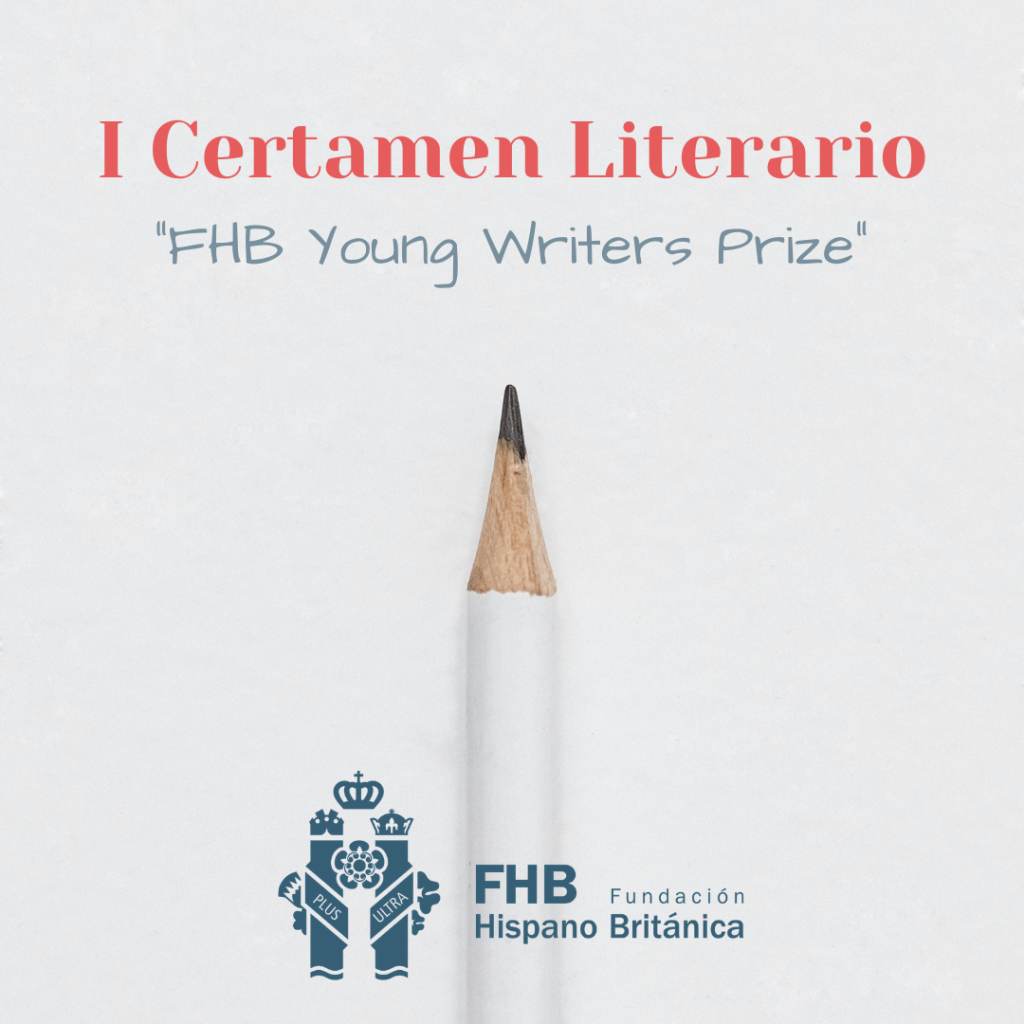
Durante las dos próximas semanas está abierto el plazo de inscripción de la primera edición del certamen literario para jóvenes FHB Young Writers Prize, que convoca la Fundación Hispano Británica.
Este concurso, dirigido a estudiantes de Bachillerato (16-18 años) de toda España, tiene por finalidad fomentar la creatividad y la utilización de la lengua inglesa en la escritura.
Los cinco integrantes del jurado son miembros de la Fundación:
– Roger Cooke- Andrew Moore
– Julia Sánchez-Asiaín (Coordinadora del equipo Think Tank)
– Ignacio Peyró (Director del Instituto Cervantes de Londres)
– Mark Howard (Director del British Council)
SPANISH IN SPAIN: A DIGITAL EVENT TO PROMOTE SPANISH TO THE WORLD
From the Federation of Spanish Schools as a Foreign Language in Spain we want to promote the Spanish as a foreign language teaching sector in Spain as a valuable bet both economically and educationally.
To do so, we have developed a digital event to show what Spain is, what it can offer you and, in addition, you can have access to some training pills developed by our centers both in didactics (for teachers) and in economy and market (for agents).
Those who participate in this activity will have preference in the upcoming events that FEDELE will be developing in 2022.
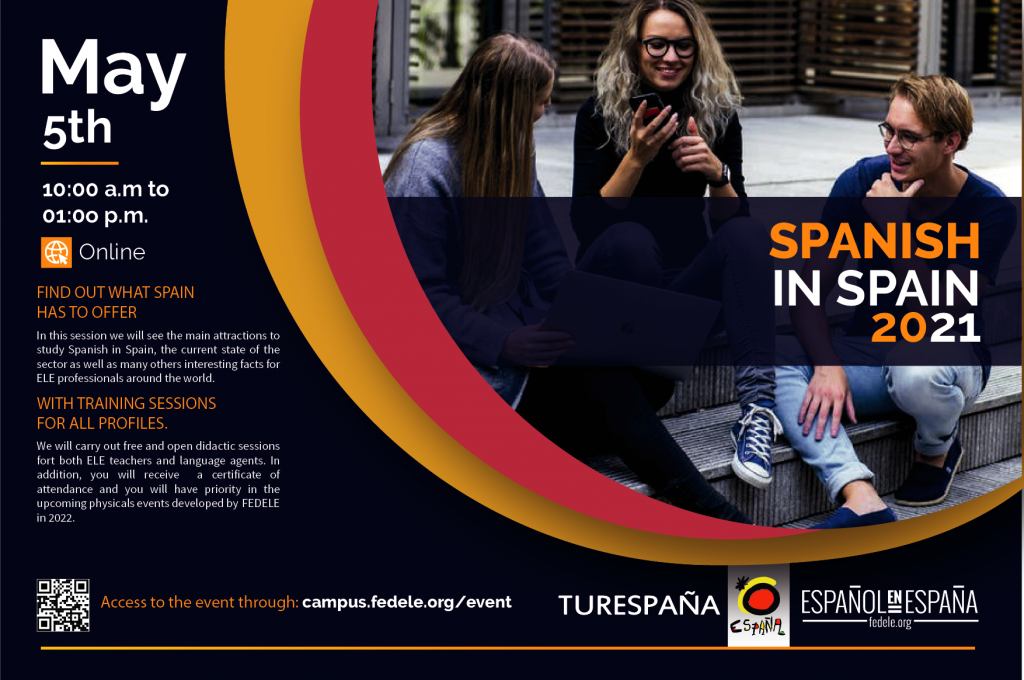
This activity has the collaboration of two organizations concerned with language tourism and language immersion in Spain, FEDELE and TURESPAÑA. The two institutions have developed a specific agenda for a total of five events that are adjusted in schedule and content to each of the countries of the world.
In case of EUROPE, the digital event will take place on 5th May 2021, at 10.00 am – 01:00 pm (Central Europe Time).
Don’t miss the session that will feature interesting presentations to learn more about Spain, Spanish as an economic resource and the facilities to send students to Spanish schools in Spain.
Access the event through: fedele.org/digital-event/
BBC journalist Joe Lynam introduces EUNICAST: Meet Visionary Europeans
BBC journalist Joe Lynam introduces EUNICAST: Meet Visionary Europeans, EUNIC London ‘s brand new podcast series featuring some of Europe’s most talented and respected artists, performers & influencers.
Sign up on our Facebook event page:
Presentan la sexta edición del Premio Talento Emergente CERU

La Fundación Banco Santander y la Sociedad de Científicos Españoles en Reino Unido (CERU) presentan la sexta edición del Premio Talento Emergente CERU 2021.
El galardón tiene como objetivo promover el talento de jóvenes científicos españoles más allá de nuestras fronteras a la vez que contribuir al desarrollo de la carrera investigadora de la persona galardonada.
El plazo para presentar la candidatura estará abierto hasta el 26 de abril de 2021. Además de una dotación económica de 14.000 libras, la persona premiada recibirá una escultura conmemorativa elaborada por la artista española Cristina Iglesias.
Esta iniciativa reconoce y apoya la carrera de jóvenes investigadores españoles asentados en el Reino Unido. El Premio Talento Emergente CERU fue pionero en sus inicios por reconocer la valiosa labor de investigadores españoles en el extranjero. Convocatorias de años anteriores premiaron a investigadores como la Dra. Eva Hevia (Universidad de Strathclyde), el Dr. Xavier Moya (Churchill College Cambridge), el Dr. David Fairén (Universidad de Cambridge), el Dr. Marc Vendrell (Universidad de Edimburgo) y la Dra. Susana García López (Research Centre for Carbon Solutions, Heriot-Watt).
Borja Baselga, Director de Fundación Banco Santander, ha remarcado que “no podemos solucionar los problemas de la ciencia española, pero sí poner nuestro granito de arena en ese reconocimiento a los jóvenes con talento que, muchas veces, se ven obligados a investigar fuera de nuestro país”. Para Baselga, la elección de Reino Unido como país donde celebrar este certamen tiene que ver “con la tradición de acogida que en los últimos tres siglos ha tenido este país para los científicos españoles en tiempos difíciles, y hacerles saber que su esfuerzo, aún lejos de su tierra, tiene fruto”.
La Dra. Carmen Sánchez, presidenta de la Sociedad de Científicos Españoles en Reino Unido, puntualiza que ”este premio enfatiza los vínculos entre Reino Unido y España y resalta la importancia de las colaboraciones internacionales en materia de ciencia e investigación, especialmente en el nuevo contexto político en el que nos encontramos. Estamos además muy satisfechos de poder colaborar con la Fundación Banco Santander con esta iniciativa, ya que se encuentra perfectamente alineada con nuestra labor de dar visibilización a la investigación realizada por españoles en el Reino Unido, así como dar apoyo a la trayectoria de una persona de gran potencial y con una carrera investigadora emergente, ya sea aportando fondos para desarrollar su investigación, conciliar su vida familiar y laboral o facilitar su formación”.
Más información aquí
SRUK/CERU EMERGING TALENT AWARD 2021
The Society of Spanish Researchers in the United Kingdom (SRUK/CERU) announces the sixth edition of the “SRUK/CERU Emerging Talent Award”. The objective of this award is to recognise and support a young Spanish researcher with an outstanding professional trajectory in the UK, as well as to facilitate the dissemination of the prize-winner’s research to both Spanish and British societies. This Award is targeted to researchers who have demonstrated high potential, strong scientific outputs and mentoring and leadership qualities.
Banco Santander Foundation sponsors this Award under its “Young Talent” programme. The “Young Talent” programme includes fellowships and specific actions, and was created with the purpose of funding the most innovative projects carried out by young scientists.
Candidates for the Award can submit their own application or be nominated by a SRUK/CERU regular, associate or friend member or by an organisation/entity such as Spanish and British Universities and Research Centres, the Office for Cultural and Scientific Affairs at the Spanish Embassy in the United Kingdom (OCSA), the Spanish Education Office in the United Kingdom and the Spanish Foundation for Science and Technology (FECYT).
More information here

